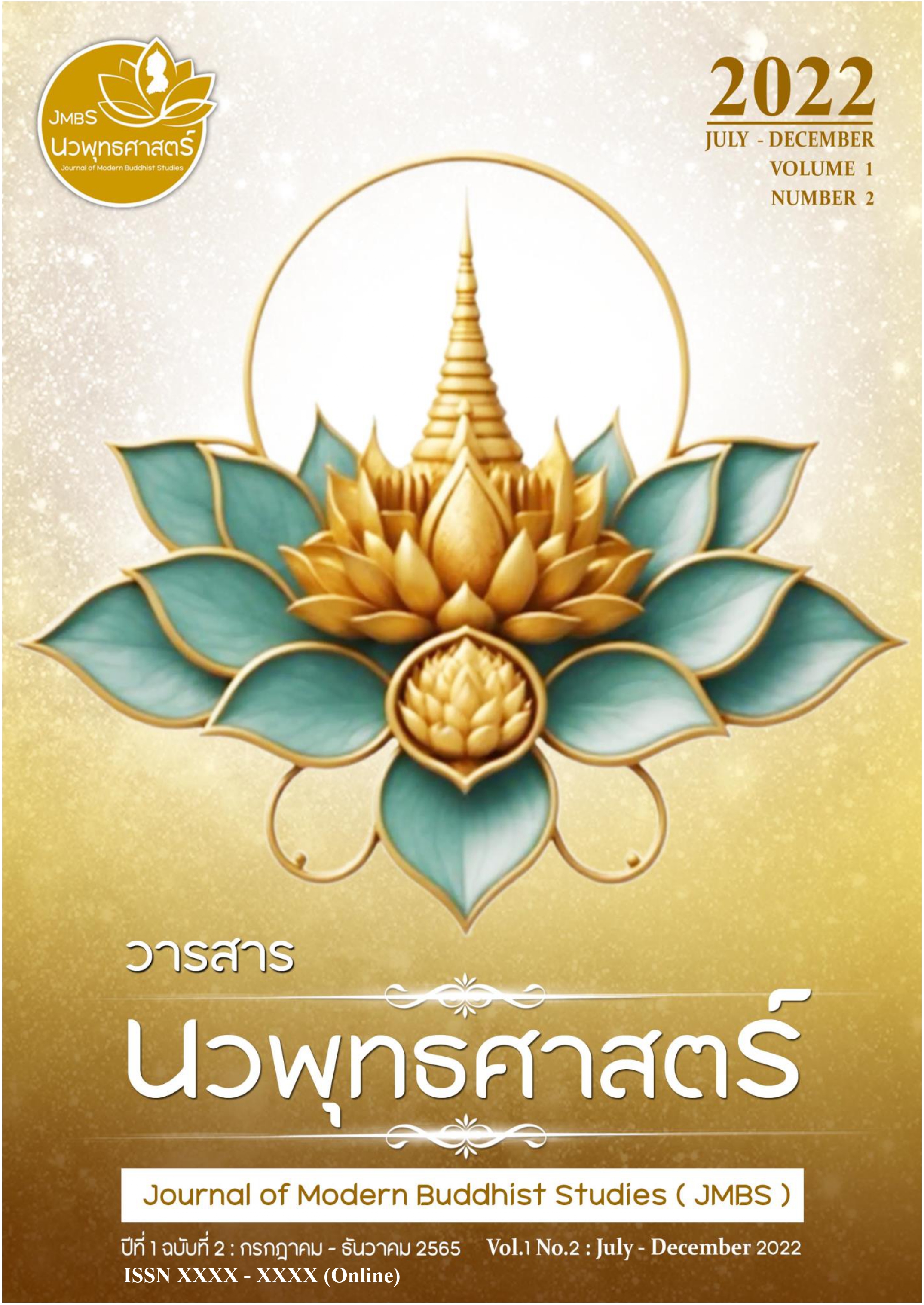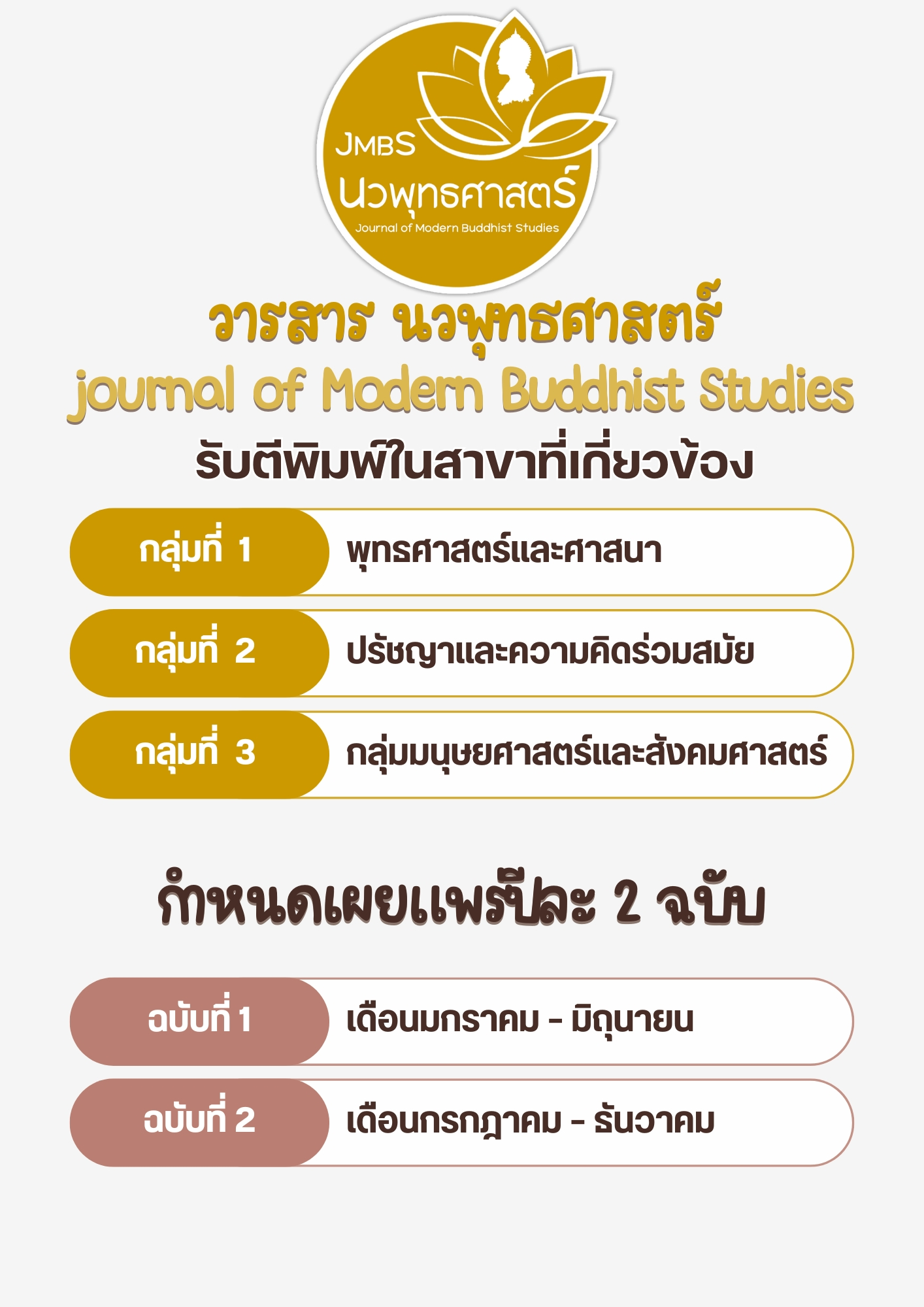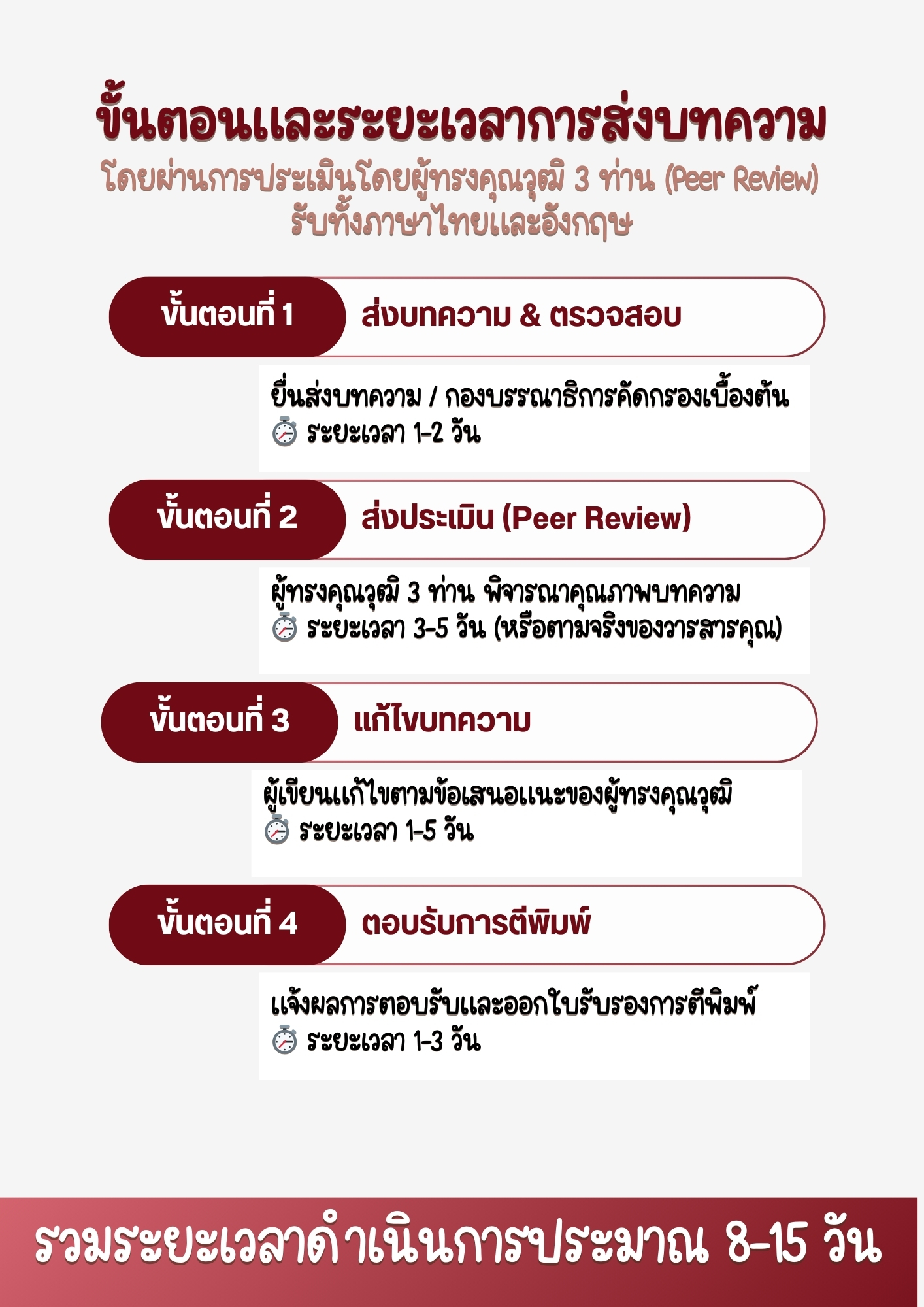BUDDHISM LEADS LIFE: INSPIRING PERSONNEL TO PERFORM THEIR DUTIES
Keywords:
Buddhism, Dharma, Inspiration, Personnel PerformanceAbstract
The academic article “Buddhism Leads Life: Inspiring Personnel to Perform Their Duties” aims to study the application of Buddhist principles to inspire personnel to perform their duties in an organization by applying important principles, namely, the Four Bases of Power, Desire, Diligence, Mindfulness, and Investigation, as the principles leading to success, and the Four Divine Abodes, Loving-Kindness, Compassion, Mudita, and Upekkha, as the principles for ethical management and human development. Practicing Buddhist principles can enhance responsibility, honesty, and goal-oriented work, allowing personnel to have a sense of duty and love for their work. Applying these principles to the work process, making conscious decisions, working as a team, developing personal potential, and participating in creative activities can reduce conflict within the organization and increase unity. In addition, creating a good environment and speaking kind words can help instill ethics and morality, creating a friendly work atmosphere, and making personnel more satisfied with their work, leading to success in their duties and the growth of the organization in the long run. The results of the study emphasize the importance of developing the mind together with developing professional skills, which is a sustainable approach for management in a modern society. Therefore, applying Buddhist principles in human resource management is an important tool that can inspire and sustainably develop the organization, both by encouraging personnel to perform their duties with determination and good conscience, in order to create a quality organization that can progress better.
References
พงษ์เมธี ไชยศรีหา (2561). “แนวทางการพัฒนาวัฒนธรรมทางการเมืองประชาธิปไตยของประชาชนในเขตเทศบาลเมือง ชุมแพ จังหวัดขอนแก่น”. วารสารสถาบันวิจัยและพัฒนา มหาวิทยาลัยราชภัฏมหาสารคาม. ปีที่ 5 ฉบับที่ 2 (กรกฎาคม - ธันวาคม).
ปริญญา สัตยธรรม (2550). “ความพึงพอใจในการปฏิบัติงานของพนักงานกรณีศึกษา : บริษัท วายเอช เอสอินเตอรเนชั่นแนลจำกัด”. สารนิพนธ์วิทยาศาสตรมหาบัณฑิต สาขาการพัฒนา
ทรัพยากรมนุษย์และองค์กร (2550). บัณฑิตวิทยาลัย: สถาบันบัณฑิตพัฒนบริหารศาสตร.
พระธรรมปิฎก (ป.อ. ปยุตฺโต) (2543). ธรรมะกับการทำงาน. พิมพ์ครั้งที่ 3. กรุงเทพมหานคร: สุขภาพใจ.
พระเทพดิลก (ระแบบ ฐิตญาโณ) (2545). ความสำเร็จหลักธรรมสู่ความสำเร็จและสันติสุข. กรุงเทพมหานคร: โรงพิมพ์ธรรมสภา.
พระราชญาณวิสิฐ (เสริมชัย ชยุมงคโล) (2545). ความสำเร็จหลักธรรมสู่ความสำเร็จและสันติสุข. กรุงเทพมหานคร: โรงพิมพ์ธรรมสภา.
พระมหาณรงค์ศักดิ์ ฐิติญาโณ (2546). พระอภิธรรมปิฎก 1. กรุงเทพมหานคร: โรงพิมพ์มหาจุฬาลงกรณราชวิทยาลัย.
พุทธทาสภิกขุ (2537). คู่มือมนุษย์ (ฉบับสมบูรณ์). กรุงเทพมหานคร: สำนักพิมพ์ธรรมสภา.
ชม ภูมิภาค (2526). การศึกษาเพื่อพัฒนาชีวิตและสังคม. กรุงเทพมหานคร: สมาคมการศึกษาแห่งประเทศไทย.
กิติพันธ์ รุจิรกุล (2529). พฤติกรรมผู้นำทางการศึกษา. กรุงเทพมหานคร: โอ.เอส พริ้นติ้งเฮ้าส์.
ประภาเพ็ญ สุวรรณ (2556). ทัศนคคติ: การวัดการเปลี่ยนแปลงและพฤติกรรมอนามัย. พิมพ์ครั้งที่ 2.กรุงเทพมหานคร: โอเดียนสโตร์.
นพพงษ์ บุญจิตราดุล (2557). หลักการและทฤษฎีการบริหารการศึกษา. นนทบุรี : ดีรณสาร.
ยงยุทธ์ เกษสาคร (2547). การวางแผนและนโยบายทางด้านทรัพยากรมนุษย์. กรุงเทพมหานคร: มหาวิทยาลัยราชภัฏพระนคร.
จักร อินทจักร และเกรียงไกร เจียมบุญศรี (2548). คู่มือการบริหารทรัพยากรบุคคล. กรุงเทพมหานคร: มีวงษ์พับลิซซึ่ง.

Downloads
Published
How to Cite
Issue
Section
License

This work is licensed under a Creative Commons Attribution-NonCommercial-NoDerivatives 4.0 International License.







